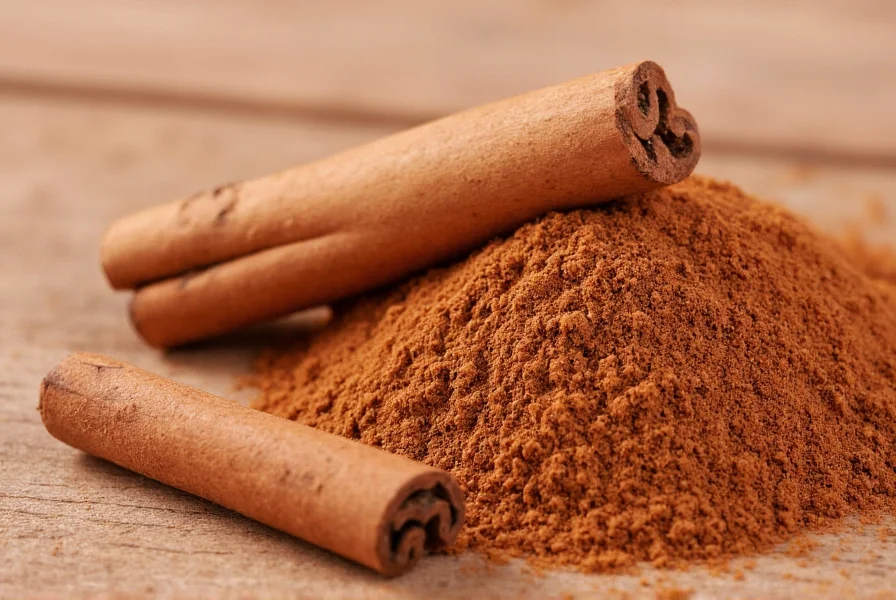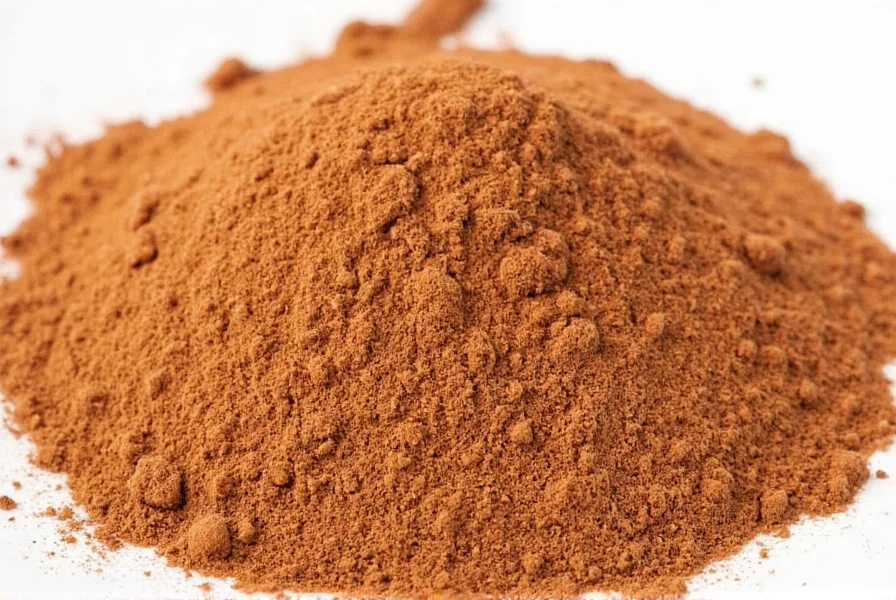When exploring the benefits of ground cinnamon, it's essential to distinguish between the two primary varieties: Ceylon ("true" cinnamon) and Cassia (the more common, cheaper variety). While both offer health advantages, their chemical compositions differ significantly, affecting both efficacy and safety.
Understanding Ground Cinnamon Composition
Ground cinnamon contains several bioactive compounds that contribute to its health properties. The most significant is cinnamaldehyde, which gives cinnamon its distinctive flavor and aroma while providing most of its therapeutic effects. Other important compounds include:
- Epicatechin (a powerful antioxidant)
- Proanthocyanidins (polyphenol antioxidants)
- Cinnamic acid
- Coumarin (present in higher amounts in Cassia cinnamon)
When comparing ground cinnamon vs cinnamon sticks, the ground form offers greater surface area, potentially increasing the bioavailability of these compounds when consumed. However, ground cinnamon also loses potency more quickly as the essential oils evaporate.

Scientifically Supported Health Benefits
Blood Sugar Regulation
One of the most well-documented ground cinnamon for blood sugar benefits involves its potential to improve insulin sensitivity. Multiple studies, including a 2013 review published in the Journal of the Academy of Nutrition and Dietetics, found that cinnamon consumption (1-6 grams daily) significantly reduced fasting blood glucose levels in people with type 2 diabetes.
The mechanism appears to involve cinnamon's ability to mimic insulin and enhance glucose uptake by cells. For those managing blood sugar, incorporating about how much ground cinnamon per day is appropriate? Research suggests 500 mg to 2 grams daily provides benefits without excessive coumarin intake, especially when using Cassia cinnamon.
Antioxidant Powerhouse
Ground cinnamon ranks exceptionally high on the Oxygen Radical Absorbance Capacity (ORAC) scale, which measures antioxidant capacity. In fact, it contains 41 times more antioxidants than blueberries by weight. These antioxidant properties of ground cinnamon help combat oxidative stress, which contributes to aging and various chronic diseases.
| Antioxidant Type | Concentration in Ground Cinnamon | Primary Health Benefit |
|---|---|---|
| Proanthocyanidins | High | Cardiovascular protection |
| Epicatechin | Moderate-High | Anti-inflammatory effects |
| Cinnamyl Alcohol | Moderate | Antimicrobial properties |
Anti-Inflammatory Effects
Chronic inflammation contributes to numerous health conditions, including heart disease, cancer, and autoimmune disorders. The ground cinnamon anti-inflammatory benefits stem primarily from cinnamaldehyde, which inhibits the release of inflammatory mediators. A 2015 study in Nutrition Research and Practice demonstrated that cinnamon supplementation significantly reduced inflammatory markers in people with rheumatoid arthritis.
Heart Health Support
Research suggests regular consumption of ground cinnamon may improve several markers of heart health. A meta-analysis published in Clinical Nutrition found that cinnamon intake was associated with:
- Reduced LDL ("bad") cholesterol
- Lower triglyceride levels
- Modest reductions in blood pressure
- Improved HDL ("good") cholesterol
These ground cinnamon for heart health benefits appear most pronounced when consumed consistently over 8-12 weeks.
Other Potential Benefits with Limited Evidence
While research is less conclusive, ground cinnamon may offer additional benefits:
Cognitive Function
Preliminary research suggests cinnamon compounds might inhibit tau protein aggregation, a hallmark of Alzheimer's disease. However, human studies are lacking, and claims about ground cinnamon for brain health should be approached cautiously.
Antimicrobial Properties
Cinnamaldehyde demonstrates natural antimicrobial effects against certain bacteria and fungi. While this makes cinnamon a traditional food preservative, the ground cinnamon antimicrobial benefits for human health require more research.

Safety Considerations and Side Effects
Understanding potential ground cinnamon side effects is crucial for safe consumption:
- Coumarin content: Cassia cinnamon contains significant coumarin, which can cause liver damage in sensitive individuals at high doses. The European Food Safety Authority recommends limiting coumarin intake to 0.1 mg per kg of body weight daily.
- Medication interactions: Cinnamon may interact with blood thinners, diabetes medications, and liver-metabolized drugs.
- Allergic reactions: Though rare, some individuals experience mouth sores or skin irritation.
For regular consumption, choosing Ceylon cinnamon ("true" cinnamon) is preferable due to its much lower coumarin content. When evaluating how much ground cinnamon per day is safe, most experts recommend:
- Cassia cinnamon: No more than 1 teaspoon (about 2.5 grams) daily
- Ceylon cinnamon: Up to 1-2 tablespoons (6-12 grams) daily appears safe for most people
Practical Usage Tips
To maximize the health benefits of ground cinnamon while minimizing potential risks:
- Store in an airtight container away from light and heat to preserve potency
- Combine with black pepper to enhance absorption of beneficial compounds
- Add to morning coffee, oatmeal, or smoothies for easy daily consumption
- Use in place of sugar in recipes to reduce overall sugar intake
- Pair with healthy fats (like almond milk or yogurt) to improve absorption of fat-soluble compounds
For those specifically interested in ground cinnamon for weight loss, research is limited. While cinnamon may help regulate blood sugar (potentially reducing cravings), it's not a weight loss miracle. Any effects would be modest and work best as part of an overall healthy diet and exercise regimen.
Choosing Quality Ground Cinnamon
Not all ground cinnamon products offer equal benefits. When selecting the best ground cinnamon:
- Check the label for cinnamon type (Ceylon vs. Cassia)
- Look for organic certification to avoid pesticides
- Choose recently ground products for maximum potency
- Consider third-party testing for coumarin content, especially with Cassia
- Avoid pre-mixed cinnamon products with added sugars or fillers
Conclusion
The benefits of ground cinnamon are most compelling for blood sugar regulation, antioxidant protection, and inflammation reduction. While not a miracle cure, incorporating moderate amounts of quality ground cinnamon (preferably Ceylon variety) into your daily diet can contribute to overall health as part of a balanced nutrition plan. Always consult with a healthcare provider before using cinnamon therapeutically, especially if you have existing health conditions or take medications.











 浙公网安备
33010002000092号
浙公网安备
33010002000092号 浙B2-20120091-4
浙B2-20120091-4